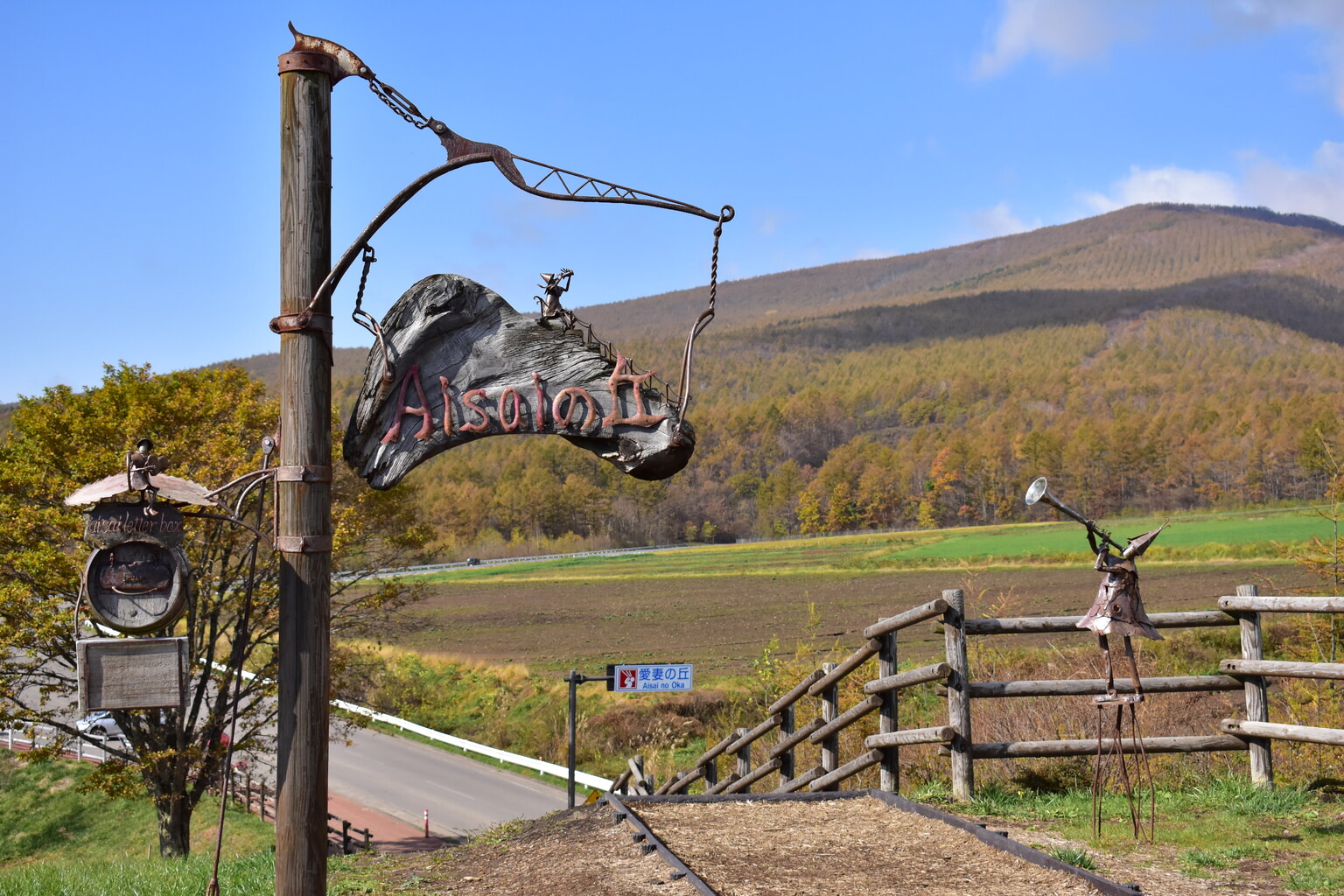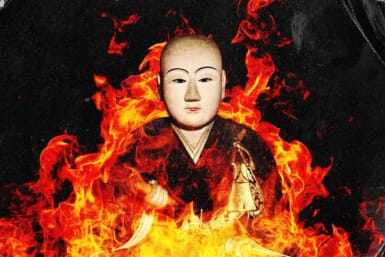Japan has its own version of Germany’s Romantic Road, which runs for around 350 kilometers from Ueda in Nagano Prefecture, across Gunma Prefecture and on to Utsunomiya in Tochigi Prefecture. Reminiscent of the original Romantic Road, the Japanese version includes a number of tourist towns and scenic spots along the way, which made it the perfect route for a recent getaway with my husband on our motorbike.
When planning the trip, however, little did we know that one of the highlights would be the quirky little village of Tsumagoi in Gunma, where you can shout out your love and appreciation to a partner – into the surrounding cabbage fields!
Sitting between popular resort towns Karuizawa and Kusatsu Onsen, Tsumagoi is one of Japan’s leading producers of cabbages. While this is hardly romantic, the hint of something deeper lies in the meaning of the two kanji characters in the village’s name: “missing one’s wife.” According to legend, the moniker is derived from an incident some 1,900 years ago, when the mythological prince Yamato Takeru-no-Mikoto was traveling in the area and cried out in anguish upon learning of the death of his wife.

Modern Romance in Japan
Such legends aside, the norms of contemporary Japanese society don’t make it easy for couples to be romantic. After the honeymoon period is over, a Japanese husband is generally expected to settle down and be a good provider for his family, putting in long hours at the office, taking frequent business trips and entertaining clients at night. Even if the wife works, she usually bears the brunt of childcare and housework. Women’s magazines in Japan still regularly feature tips on getting a husband to pitch in at home, such as starting him off with one small task and offering profuse praise – more in line with a child than an adult.
While public displays of affection are becoming more common among young Japanese, a lot of men still don’t feel comfortable holding their partner’s hand, let alone kissing in public. (Mine is fine with the former; the latter is generally reserved for airports or stations when one of us is going off on a trip.) Moreover, according to one recent study by cosmetics brand Red BA, some 70 percent of couples start referring to each other as “Mama” and “Papa” once they become parents. In 2015 a major advertising company teamed up with cosmetics firm Pola to launch a campaign based upon the tender feelings aroused in mothers when their spouse calls them by their first name after years of just hearing “Mama.”

Dedicated to the One I Love
Against this background, in 2006 the village of Tsumagoi began holding an annual event each September for these stoic, reticent Japanese men to shout out their true feelings for their significant others. For a society that loves festivals and doing things in a group setting, it was an inspired idea. The full title is “Kyabetsu Batake no Chushin de Tsuma ni Ai o Sakebu” or “Shouting Out Love for a Wife from the Middle of the Cabbage Fields” but it also goes by the nickname ‘Kyabe-chu.’ It’s possible that the naming is also a quirky play on Kyoichi Katayama’s novel Sekai no Chūshin de, Ai o Sakebu or Crying Out Love, In the Center of the World and also known as Socrates in Love. Like nearly everything else, however, the event was not held in 2020 and 2021 due to the pandemic; things are still under consideration for 2022.
“We’ve had many interesting stories over the years,” says Miho Yamada of the Tsumagoi Village Tourism Association. “In one couple’s case, the wife had been requesting information about the event for seven years, before finally getting her shy husband to accompany her to the venue in 2018, but he wouldn’t actually join in. Then they came to Kyabe-chu the following year and at last he found the courage to give a great shout out to his wife.”
Kyabe-chu takes place at Aisai-no-Oka “Beloved Wife Hill,” which is open year-round. There is information about the area, a viewing platform for admiring the countryside or shouting out one’s devotion and a bilingual set of well-meaning suggestions for husbands seeking a more loving relationship. While some of these may have a decidedly quaint vibe for many non-Japanese (“try doing some housework to please your wife”), others could well apply to any couple — “try letting go of your pride” and “try to express your gratitude.”
There were several other couples of various ages taking photos when we stopped at Aisai-no-Oka, but nobody else was shouting out to the surrounding cabbages and my spouse wasn’t particularly keen to buck the trend. Instead, we just walked up to the nearest cabbages to say “I love you” and then we took a few selfies for posterity. A bonus for bikers – the green of the cabbage field makes a nice backdrop for pictures of motorbikes.

Getting Away From It All in Tsumagoi
We were just passing through, but Tsumagoi has much more to offer than just vistas of cabbages, making it an ideal destination for an overnight stay with your significant other. There are plenty of scenic spots and Yamada particularly recommends Onioshidashi Volcanic Park, where you can take a closer look at a huge range of unusual volcanic rocks, as well as many alpine plants in the green season. A temple at the park’s center offers panoramic views of the surrounding area. After a day out in nature, soak your cares away at one of the area’s hot springs, including Manza Onsen and Kazawa Onsen.
Tsumagoi has been supported by Japan Aisaika Organization (JAO) or “Devoted Husbands.” The NPO was started in 2004 by Kiyotaka Yamana, who drew on his own experience to try and encourage other men to nurture their relationships with their wives. Yamana lives in Tokyo but was instrumental in establishing the Kyabe-chu event in Tsumagoi.
“Over the years we’ve had many inquiries from various international news outlets about Japan’s approach to love and romance, especially around Valentine’s Day,” explains Yamana, who currently serves as the JAO Chairperson.
Until quite recently Valentine’s Day in Japan was marketed squarely at young women, who were expected to buy giri (obligation) chocolate to thank the men in their life – including colleagues and bosses – with the hope of receiving a reciprocal gift on an invented-in-Japan occasion called “White Day” exactly a month later. Nowadays, the custom is waning and women are just as likely to buy chocolate for female friends – or themselves.

Say it With Flowers
There is another day, however, for husbands to honor the lights of their lives – January 31, or Aisai-no-hi (Beloved Wives Day), with the name based on the readings of the numbers in the date. JAO has worked with the florist industry to establish this as a day for husbands to buy a bouquet and it has become increasingly popular nationwide. Since this just happens to be my birthday, my husband usually buys flowers anyway, but now there is an extra incentive.
While Covid-19 has had many negative effects on society, Yamana points out that changing patterns of work and socializing during the past two years have offered Japan’s couples the chance to spend more time together. “Traditional lines have blurred and many men have shifted their focus from the company to the home. Perhaps this has also led to renewed appreciation for the person who is closest to them – their wife,” he observes.








